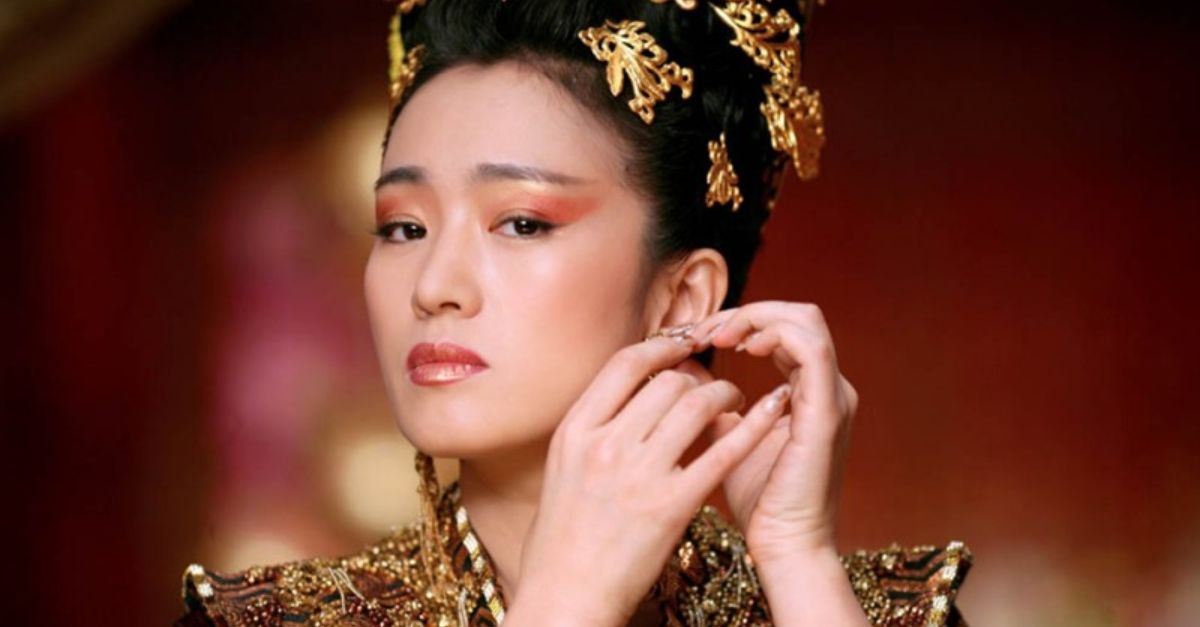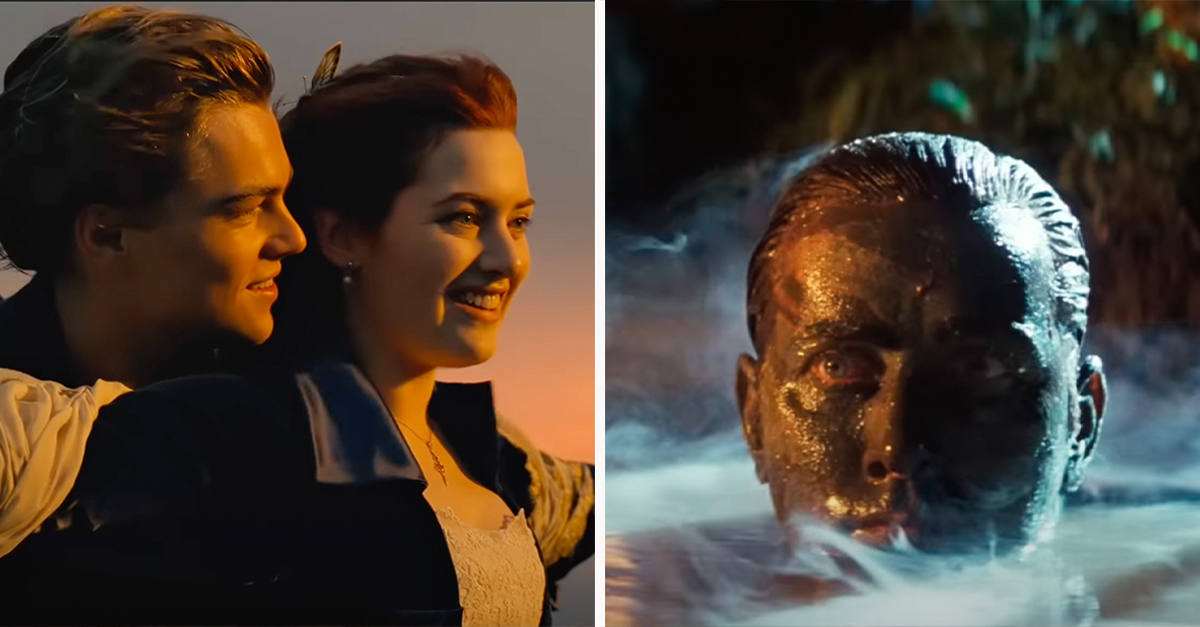Asia’s Brightest Stars On Screen
Generations of Asian actresses have moved effortlessly between local blockbusters and international hits. By taking on multiple unconventional roles, they’ve pushed boundaries and expanded cinema’s reach in their own ways.

Gong Li (China)
Before Chinese cinema was known worldwide, Gong Li was already blazing the trail. Her haunting turn in Raise the Red Lantern made Western critics sit up. She was also the very first Asian actress invited to join the Cannes Film Festival jury.
 Orion Classics, Raise the Red Lantern (1991)
Orion Classics, Raise the Red Lantern (1991)
Zhang Ziyi (China)
Few actors launch their career with a global phenomenon, but Zhang Ziyi did with Crouching Tiger, Hidden Dragon. She later crossed into Hollywood with Rush Hour 2 and also earned Golden Globe and BAFTA nominations for Memoirs of a Geisha.
 New Line Cinema, Rush Hour 2 (2001)
New Line Cinema, Rush Hour 2 (2001)
Christine Hakim (Indonesia)
Christine Hakim became Indonesia’s most acclaimed actress after her debut in Cinta Pertama (1973). She went on to star in Tjoet Nja’ Dhien, which in 1989 became the first Indonesian film screened at Cannes. Then, in 2002, she made history again as the first Indonesian artist to serve on the Cannes jury.
 PT Gramedia Film, Cinta Pertama (1973)
PT Gramedia Film, Cinta Pertama (1973)
Lorna Tolentino (Philippines)
Lorna Tolentino entered film as a child and grew into one of Philippine cinema’s most awarded actresses. She won multiple FAMAS and Gawad Urian honors for performances in Maging Akin Ka Lamang, Narito Ang Puso Ko, and more throughout a career that spanned over four decades.
 Viva Films, Maging Akin Ka Lamang (1987)
Viva Films, Maging Akin Ka Lamang (1987)
Jeon Do-yeon (South Korea)
When Jeon Do-yeon won Best Actress at Cannes for Secret Sunshine in 2007, it was a turning point for Korean cinema’s recognition abroad. Her filmography balances mainstream hits with intense character studies, a combination that few South Korean actors have maintained with such consistency.
 Cinema Service, Secret Sunshine (2007)
Cinema Service, Secret Sunshine (2007)
Fan Bingbing (China)
She may have appeared in X-Men: Days of Future Past, but Fan Bingbing’s superpower is reinvention. One day she’s ruling red carpets in dramatic gowns, the next she’s producing edgy Chinese dramas. Nicknamed China’s “queen of the spotlight,” her stardom surpasses acting.
 20th Century Fox, X-Men: Days of Future Past (2014)
20th Century Fox, X-Men: Days of Future Past (2014)
Zhao Wei (China)
Nicknamed “China’s Little Swallow” after a hit TV series, Zhao Wei became one of the country’s most beloved actresses. She went on to direct So Young, which ended up grossing over $100 million. She’s one of those rare actresses who have transitioned from household-name star to award-winning filmmaker so successfully.
 Zhao Wei Studio, Wikimedia Commons
Zhao Wei Studio, Wikimedia Commons
Meiko Kaji (Japan)
Meiko Kaji’s tough screen presence made her the face of 1970s Japanese exploitation films. She headlined the Female Prisoner Scorpion series and Lady Snowblood. Even Quentin Tarantino has used her songs in both Kill Bill movies, introducing her cult status to a new generation of viewers.
 Toei Company, Female Prisoner Scorpion (1972–1973)
Toei Company, Female Prisoner Scorpion (1972–1973)
Tang Wei (China)
When Tang Wei starred in Ang Lee’s controversial Lust, Caution, she was banned from acting in China for years. But she bounced back spectacularly with Decision to Leave, which critics hailed as a masterpiece. Her career proves resilience can be just as powerful as talent.
 CJ Entertainment, Decision to Leave (2022)
CJ Entertainment, Decision to Leave (2022)
Zhou Xun (China)
Directors love her because she can vanish into any role. One year she’s an ancient empress, the next she’s a modern-day romantic lead. Zhou Xun is one of the few actresses to sweep China’s “Grand Slam” acting awards—film, TV, and stage. She’s a true shape-shifter.
 World Economic Forum, Wikimedia Commons
World Economic Forum, Wikimedia Commons
Shabana Azmi (India)
Parallel cinema in the 1970s gained a significant voice through Shabana Azmi. She starred in politically charged films like Ankur and Arth, known for their unflinching realism. With five National Film Awards, she became not only a prolific actress but also a symbol of socially conscious storytelling.
 Blaze Films, Ankur (Seedling) (1974)
Blaze Films, Ankur (Seedling) (1974)
Michelle Yeoh (Malaysia)
Michelle Yeoh trained as a dancer before switching to martial arts films without any stunt doubles. From Crouching Tiger, Hidden Dragon to James Bond’s Tomorrow Never Dies, she broke genre barriers. Recently, in 2023, she became the first Asian woman to win the Best Actress Oscar.
 Sony Pictures Classics, Crouching Tiger, Hidden Dragon (2000)
Sony Pictures Classics, Crouching Tiger, Hidden Dragon (2000)
Anita Mui (Hong Kong)
Long before she appeared in films, Anita Mui was already a music sensation known as the “Madonna of Asia.” She brought that same charisma to the screen with roles in Rouge and Heroic Trio. Her influence shaped both Hong Kong’s music scene and its film industry.
Sridevi (India)
Sridevi was already acting in Tamil films as a child before transitioning to Bollywood. She went on to become one of India’s first female superstars, carrying films like Mr India and Chandni on her name alone. She received the Padma Shri (India's fourth-highest civilian honor) from the government.
 Yash Raj Films, Chandni (1989)
Yash Raj Films, Chandni (1989)
Moon So-ri (South Korea)
Moon So-ri pushed boundaries early with her award-winning performance in Oasis, where she portrayed a woman with cerebral palsy. She challenged boundaries again with A Good Lawyer’s Wife and joined Park Chan-wook’s The Handmaiden, while directing shorts that screened at global festivals.
Joey Wong (Taiwan)
A ghostly heroine in A Chinese Ghost Story transformed Joey Wong into a fantasy icon overnight. Her ethereal presence and her range beyond supernatural romance can be seen across projects in Taiwan, Hong Kong, and Japan as well.
 Golden Harvest, A Chinese Ghost Story (1987)
Golden Harvest, A Chinese Ghost Story (1987)
Joan Chen (China)
Joan Chen began acting as a teenager in Shanghai before moving to the US. She gained global attention in The Last Emperor and later appeared in Twin Peaks. But that's not all, she even won Best Director at the Golden Horse Awards for Xiu Xiu: The Sent Down Girl.
 Screenshot from The Last Emperor (1987)
Screenshot from The Last Emperor (1987)
Maggie Cheung (Hong Kong)
Starting out as a beauty queen, Maggie Cheung became Hong Kong’s most acclaimed actress. She worked with Wong Kar-wai on In the Mood for Love, a film that ranks among cinema’s greatest. Cheung also won Best Actress at Cannes in 2004, a rare honor for Asian actors.
 Block 2 Pictures, In the Mood for Love (2000)
Block 2 Pictures, In the Mood for Love (2000)
Brigitte Lin (Hong Kong)
Brigitte Lin awed audiences in the 1980s and 90s, often playing androgynous or unconventional roles. In Peking Opera Blues and Chungking Express, she defied traditional portrayals of women in film. Her ability to shift between genders and genres set her apart in Hong Kong cinema.
 Golden Harvest, Peking Opera Blues (1986)
Golden Harvest, Peking Opera Blues (1986)
Rekha (India)
Her early career drew criticism for awkward performances, but Rekha reinvented herself with striking roles in the late 1970s. Umrao Jaan showcased her transformation, earning her a National Film Award. Over five decades, she appeared in more than 180 films across every major genre.
Vivian Wu (China)
Chosen by Bernardo Bertolucci for The Last Emperor, Vivian Wu quickly gained international recognition. She went on to act in Oliver Stone’s Heaven & Earth and later starred in Netflix’s Away to build a career that moved between Chinese and American productions.
Isuzu Yamada (Japan)
In 2000, Japan awarded Isuzu Yamada the Order of Culture for lifetime achievement for a career that spanned from the 1930s to the 1980s. She starred in Osaka Elegy and then in Kurosawa’s Throne of Blood, where she gave a chilling performance as Lady Macbeth’s counterpart.
Rosamund Kwan (Hong Kong)
Her portrayal of “13th Aunt” in the Once Upon a Time in China series became one of her signature roles, but she also starred in hits like Project A Part II. Sharing the screen with Jet Li and Jackie Chan, she held her own alongside the industry’s giants.
 Golden Harvest, Once Upon a Time in China series (1991–1997)
Golden Harvest, Once Upon a Time in China series (1991–1997)
Setsuko Hara (Japan)
Setsuko Hara’s role in Tokyo Story became one of cinema’s most celebrated performances. She collaborated often with director Yasujiro Ozu in films like Late Spring and Early Summer. However, at 43, she retired abruptly and withdrew entirely from public life.
Hideko Takamine (Japan)
Hideko Takamine started acting in the late 1920s and sustained her career for five decades. Under director Mikio Naruse, she starred in films such as When a Woman Ascends the Stairs, which was praised for its emotional honesty. Critics consistently regarded her as one of classical Japanese cinema’s supreme talents.
 Toho, When a Woman Ascends the Stairs (1960)
Toho, When a Woman Ascends the Stairs (1960)
Sylvia Chang (Taiwan)
Sylvia Chang is both a performer and a filmmaker. As an actress, Chang appeared in over 100 films across Hong Kong and Taiwan. And behind the camera, she directed 20 30 40, which screened at Berlin, and earned Golden Horse Awards for blending intimate storytelling with sharp social commentary.
 alanine from Hong Kong, Wikimedia Commons
alanine from Hong Kong, Wikimedia Commons
Konkona Sen Sharma (India)
Born to filmmaker Aparna Sen, Konkona first gained wide recognition in Mr and Mrs Iyer. She followed it with Page 3 and Omkara to earn a reputation for portraying complex, unconventional women. In recent years, Konkona has also directed her first movie, A Death in the Gunj.
 Sony Pictures Classics, Mr. and Mrs. Iyer (2002)
Sony Pictures Classics, Mr. and Mrs. Iyer (2002)
Sammi Cheng (Hong Kong)
Sammi Cheng began as a Cantopop sensation, then dominated the box office for romantic comedies in the late 1990s. Films like Needing You… (2000) and Love on a Diet (2001) paired her repeatedly with Andy Lau, which cemented one of the city’s most beloved on-screen partnerships.
 Media Asia Distribution, Love on a Diet (2001)
Media Asia Distribution, Love on a Diet (2001)
Kim Hye-ja (South Korea)
For decades, Kim Hye-ja was known on Korean television for maternal roles. Then Bong Joon-ho’s Mother reintroduced her as a force of unpredictable intensity. The performance stunned critics worldwide and won her Best Actress at the Asia Pacific Screen Awards.
 The Chosunilbo JNS, Getty Images
The Chosunilbo JNS, Getty Images
Priyanka Chopra Jonas (India)
After winning Miss World in 2000, Priyanka Chopra quickly became one of Bollywood’s leading actresses with films like Fashion and Barfi!. She later broke into American television as the star of Quantico and has since appeared in Hollywood productions such as Baywatch in 2017.
 Paramount Pictures, Baywatch (2017)
Paramount Pictures, Baywatch (2017)
Jun Ji-hyun (South Korea)
In 2001, My Sassy Girl turned Jun Ji-hyun into a phenomenon, becoming one of Asia’s biggest romantic comedies. She later stole scenes in the heist blockbuster The Thieves and drew record-breaking ratings with My Love from the Star, especially across China and Korea.
 SBS, My Love from the Star (2013–2014)
SBS, My Love from the Star (2013–2014)
Kim Min-hee (South Korea)
Kim Min-hee began in glossy romances before shifting into arthouse cinema with director Hong Sang-soo. In On the Beach at Night Alone, she played an actress confronting loneliness and scandal. This performance deservingly won her Best Actress at the Berlin Film Festival.
 Finecut, On the Beach at Night Alone (2017)
Finecut, On the Beach at Night Alone (2017)
Carina Lau (Hong Kong)
Television gave Carina Lau her start, but cinema cemented her reputation. With standout roles in Wong Kar-wai’s Days of Being Wild and 2046, she proved her staying power. Beyond her acting, Lau is a respected businesswoman with a long-standing presence in Hong Kong culture.
 In-Gear Film Production, Days of Being Wild (1990)
In-Gear Film Production, Days of Being Wild (1990)
Miyoshi Umeki (Japan)
Miyoshi Umeki moved from Japan to the United States and became the first Asian actress to win an Academy Award, for Sayonara. Later, she played Mrs. Livingston on the sitcom The Courtship of Eddie’s Father, a rare example of sustained Hollywood visibility at the time.
 Metro-Goldwyn-Mayer (MGM), The Courtship of Eddie’s Father (1963)
Metro-Goldwyn-Mayer (MGM), The Courtship of Eddie’s Father (1963)
Lin Ching-hsia (Taiwan)
Better known internationally as Brigitte Lin, she redefined stardom in the 1980s and ’90s Hong Kong film scene. Her androgynous turn in Ashes of Time and cult favorite Swordsman II made her one of the era’s most visually striking and unconventional stars.
Song Hye-kyo (South Korea)
Song Hye-kyo rose to fame in Autumn in My Heart, one of Korea’s earliest export dramas. She followed with Full House and then Descendants of the Sun, a series so popular it sold broadcasting rights across Asia and regularly topped 30 percent viewership at home.
 KBS2, Autumn in My Heart (2000)
KBS2, Autumn in My Heart (2000)
Chintara Sukapatana (Thailand)
International audiences first noticed Thai talent on a major stage when Chintara Sukapatana starred opposite Robin Williams in Good Morning, Vietnam. Her role introduced Thai talent to international cinema during a period when Southeast Asian representation was rare.
 Touchstone Pictures, Good Morning, Vietnam (1987)
Touchstone Pictures, Good Morning, Vietnam (1987)
Karena Lam (Taiwan)
Karena Lam made her debut in Hong Kong with July Rhapsody, a role that won her instant acclaim. Lam followed it with Inner Senses, acting alongside Leslie Cheung in his final film. In 2015, she took home the Golden Horse Best Actress award for Zinnia Flower.
 Golden Harvest, July Rhapsody (2002)
Golden Harvest, July Rhapsody (2002)
Madhuri Dixit (India)
Audiences first noticed Madhuri Dixit’s charisma in Tezaab, where the hit song “Ek Do Teen” made her a sensation. Through the 1990s, Madhuri balanced dramatic roles with dazzling dance numbers in Hum Aapke Hain Koun..!, collecting six Filmfare Awards during her lifetime.
 N. Chandra Productions, Tezaab (1988)
N. Chandra Productions, Tezaab (1988)
Youn Yuh-jung (South Korea)
Kim Ki-young’s Woman of Fire introduced Youn Yuh-jung in a fearless breakout role. After stepping away from acting for years, she returned in acclaimed films like The Housemaid. Later on, her career reached new heights in 2021 when Minari earned her an Academy Award.
 IFC Films, The Housemaid (2010)
IFC Films, The Housemaid (2010)
Shu Qi (Taiwan)
Shu Qi began with daring roles in the 1990s before breaking out internationally with Hou Hsiao-hsien’s Millennium Mambo. In The Assassin, critics praised her restrained, expressive performance. After that, she also crossed into Hollywood with The Transporter to expand her career to the West.
 Well Go USA Entertainment, The Assassin (2015)
Well Go USA Entertainment, The Assassin (2015)
Gwei Lun-mei (Taiwan)
Her breakout came in Jay Chou’s Secret, a school romance that became a hit across Asia. Gwei Lun-mei earned major recognition with Girlfriend Boyfriend, which won her Best Actress at the Golden Horse Awards, and cemented her as a leading Taiwanese talent.
 Distrib Films, Girlfriend, Boyfriend (2012)
Distrib Films, Girlfriend, Boyfriend (2012)
Tabu (India)
Tabu rarely chose easy roles. From the unsettling Maachis to the literary adaptation Maqbool, her choices consistently pushed boundaries. International audiences know her from Mira Nair’s The Namesake and Ang Lee’s Life of Pi, while in India, she remains acclaimed for her fearless range.
 Fox Searchlight Pictures, The Namesake (2006)
Fox Searchlight Pictures, The Namesake (2006)
Nora Aunor (Philippines)
Discovered through a singing contest, Nora Aunor transitioned to acting and became the “Superstar” of Philippine cinema. Her landmark role in Himala earned international acclaim, with CNN naming it among the greatest Asian films. She has appeared in more than 170 films till now.
Kinuyo Tanaka (Japan)
Kinuyo Tanaka acted in more than 200 films, including Mizoguchi’s The Life of Oharu. She also became one of Japan’s first female film directors and broke barriers in a male-dominated industry. Her dual legacy as performer and filmmaker remains rare in Japanese cinema history.
 Unknown authorUnknown author, Wikimedia Commons
Unknown authorUnknown author, Wikimedia Commons















